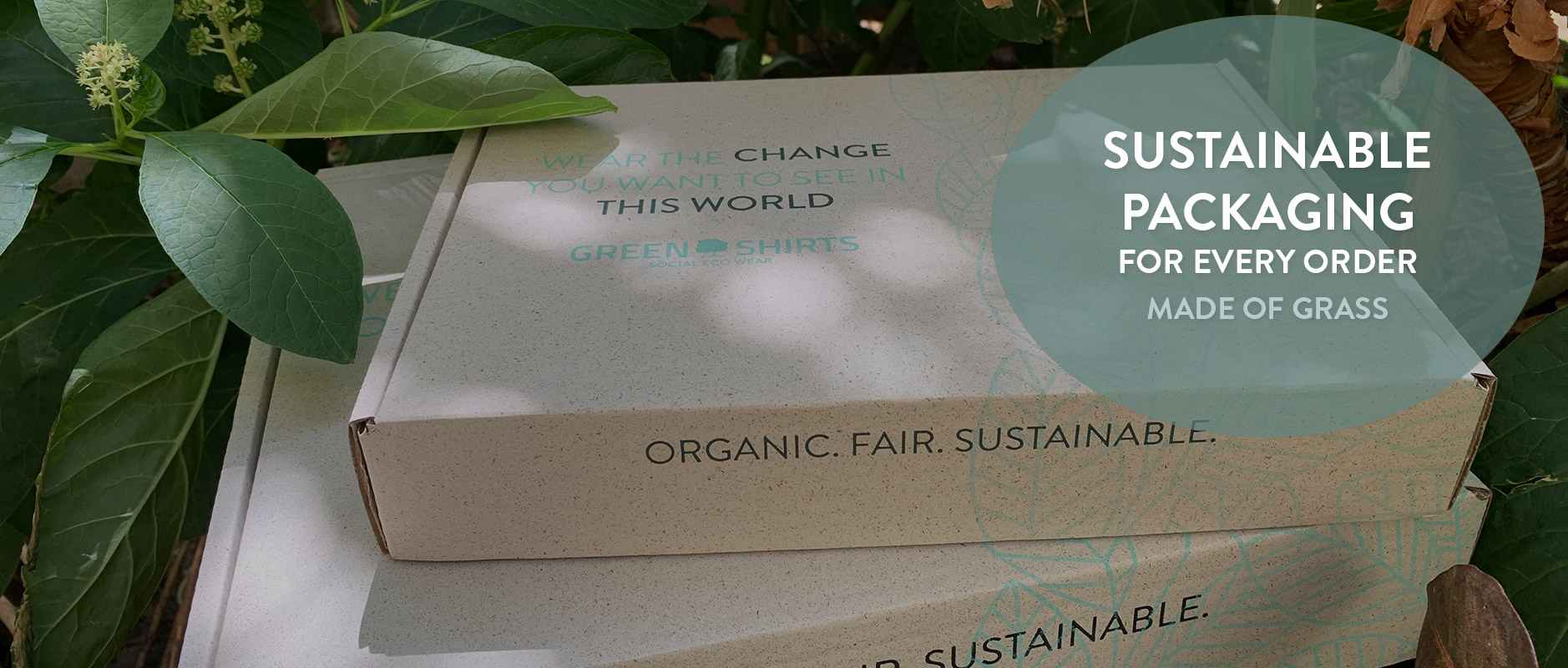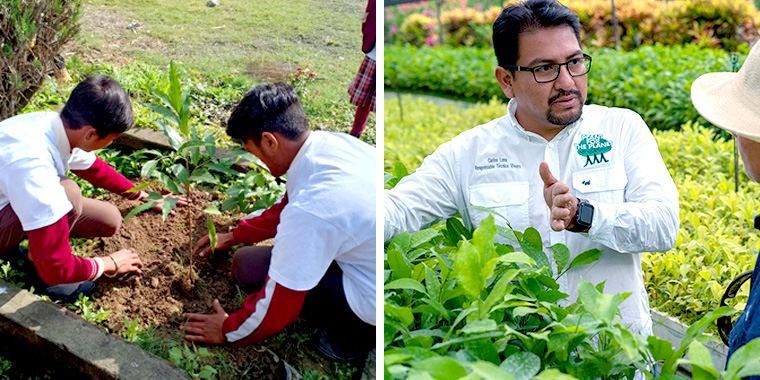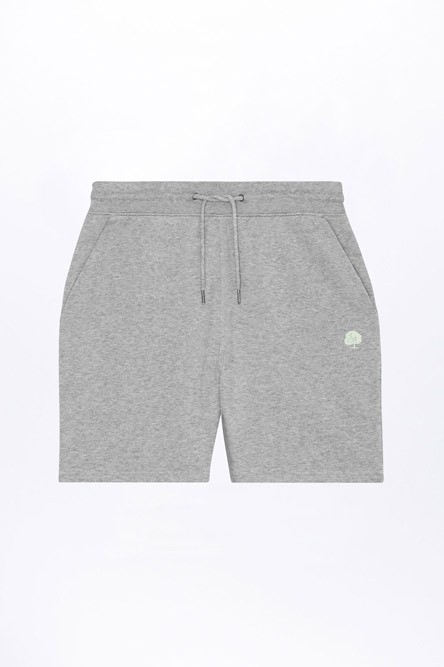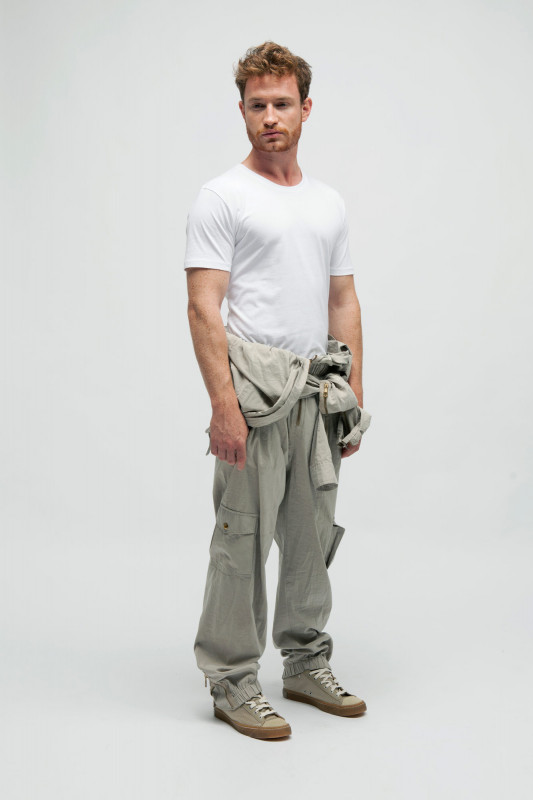Short Joggingpants made of Organic Cotton
Prices incl. VAT plus shipping costs
Ready for shipment, Delivery time 3-5 days
Our versatile unisex sweatpants are great for sports, shopping or just sitting in the park. The chic cords with metal ends give these shorts that certain something and set them apart from other pants. They have two pockets in the front and one in the back. Normal fit Simon is 183cm tall and wears size M.
85% Cotton (Organic Cotton) (organic), 15% Recycled Polyester / fair trade / fabric thickness: 300g/m²
Washing recommendations: Up to 40° degrees - for extra durability you wash at 30° degrees.
Your order will be delivered directly to your address. Shipping is european wide, and you can track your order per delivery information you receive per mail. The shipping costs for your order will be calculated in the checkout.
Delivery
Your delivery will be processed usually in 1-3 days and produced/ shipped. Delivery time is approximately 5-7 business days. Climate neutral shipment is processed by " DHL Go Green" to any european address.
Returns
Returns are free. Just log in your account and print your personal shipping label. Please consider that our printed products , are all produced individually for your purposes. For the appropriate return address check the FAQ's
- Order number: U-STBU578C2501L
COTTON TEXTILES
Sustainable organic cotton protects the environment and people
Sustainably grown cotton conserves nature and fosters livelihood

socially and ecologically resilient world
BENEFITS FOR YOU

BENEFITS FOR THE WORLD
The value chain for organic cotton production is certified for highest social and ecological standards
No use of pesticides, insecticides and GMO-based crops
100% biodegradable
The value chain for organic cotton production is certified for highest social and ecological standards
From the cultivation of seed to the production and colouring of yarn, all methods incorporate fair working standards and environmentally friendly processes that are certified
Textiles made from cotton - how does it work?
Cotton has been cultivated on several continents for over 6000 years. There are over 50 natural types of cotton. The conventional cultivation of cotton requires up to 100 grams of chemicals per T-shirt in production. As a result, 77 million workers are poisoned every year and struggle with infertility, miscarriages and many other diseases. When it rains heavily, large quantities of pesticides are often released into rivers, lakes and the sea, harming both living creatures and nature.
Organically grown cotton relies on natural methods of fertilization, innovative and natural strategies of weed control, pest control, defoliation and crop preparation. Up to 80% of the water comes from the monsoon rains. This protects nature and people from environmentally harmful and toxic substances. This avoids negative external costs for society and the environment. In 2018, only 0.7% of global cotton production was organic. Even if organic cotton only accounts for a small proportion of total cotton consumption today, it will continue to grow strongly in the future.
LEARN MORE ABOUT COTTON
CARE INSTRUCTIONS
- up to 40C with the same colors
- no special detergent necessary
- after washing, pull into shape and air dry
- Iron slightly damp at lower temperatures
- Tip: When cleaning stains, it is best to use gall soap or Panama bark extract cleaner.
- See care label for details




WE PLANT ONE TREE PER ORDER
- With "Plant for the Planet" we plant trees and, through the Academy, we support children in getting involved in the issue of species protection and reforestation.
- We want to plant 1,000 billion trees with Plant for the Planet. 13.5 billion have already been achieved! Help save our planet.













